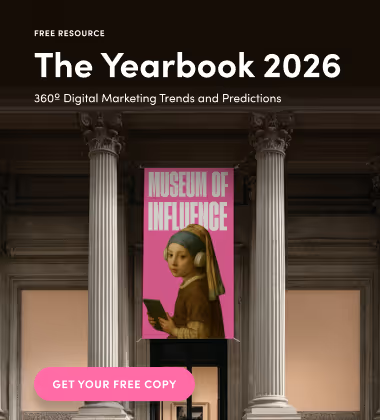These days, audiences are just not buying it—literally and figuratively.
Amidst all the ads and influencers on social media telling us what to buy, there's a new breed on the rise sending a totally different message: what we shouldn't buy. And they call themselves the 'de-influencers.'
With #deinfluencing having been viewed over 449.5 million times on TikTok alone, it's a powerful movement that has prompted consumers to rethink their buying habits and caused businesses to re-think the authenticity of their marketing plans.
So what exactly is the deal with de-influencers? What are the strategies they use? What are the benefits and downsides of de-influencing?
Below, The Influence Agency dives into the answers.
What Is De-Influencing?
Before talking about what de-influencers are, let's recap on what it is that influencers do.
Thanks to their knowledge and expertise in a particular area, influencers are capable of influencing the decisions of their followers—be it in the department of beauty, fashion, food, or wellness.
On the other hand, de-influencers are all about encouraging people to not buy things or overconsume, be less reactive to trends, and be more mindful of their purchases.
All of this ties into the idea of sustainability. In a way, de-influencing could have positive effects on the environment, as people aren't making impulse purchases from stores all the time and giving in to fast fashion.
Be Less Reactive to Trends
Just because an item is trending, doesn't mean it's always worth the purchase. De-influencers are encouraging audiences to think twice before jumping on the bandwagon of trending products.
Avoid Overconsuming
More often than not, less is just simply more. Especially in the fashion and beauty department, how much do you really need to feel and look your best?
You're bound to have noticed that minimalism is having a huge moment in the spotlight. Similarly, it elevates one of the biggest points of de-influencing: don't overconsume.

De-Influencing Strategies
Don't Buy This
De-influencing is a blunt process. You'll often find these social media personalities telling people "Don't buy this," followed by an honest review of why it simply isn't worth spending your hard-earned money on.
Sometimes, it's just as simple as that. In other instances, it involves the mention of a recommended alternative that is either cheaper, more effective, or a more sustainable option.
Debunking
Whether it's no-transfer lipstick, hydrating foundation, or dramatic mascara, there's always that one product that people on social media just can't stop raving about at the moment. But is it really worth all the hype? That's where de-influencers come in to put these products to the test and debunk claims.
At the end of the day, it's life-saving content for picky shoppers…and the worst nightmare for brands that aren't all that they claim to be.
The Benefits of De-Influencing
Shines The Spotlight on Lesser-Known-Yet-Worthy Brands
Let's face it, not every brand in the spotlight is always the most deserving one of being in that position. We can't deny that consumers can really be like sheep at times and easily believe in the products that everyone else raves about.
De-influencing helps unravel the truth about products that are deceiving. And in the process, it serves as an opportunity for lesser-known-yet-worthy brands to get the recognition they deserve.
Encourages Sustainable Lifestyles
Our purchasing decisions have a huge impact on the environment. Statistics from Zero Waste Week's research show that plastic packaging waste from the beauty industry amounts to over 120 billion units of packaging every year, contributing to the alarming number of landfills.
If we buy less and consume less, we're all a step closer to leading eco-friendly lifestyles.
Pushes Brands To Be More Authentic and Transparent
The rise of de-influencers is also likely to have a huge effect on the marketing strategies of brands.
When planning how to present their campaigns and choosing influencers to work with, we can expect that they'll put a greater emphasis on transparency, authenticity, and value alignment to avoid negative scrutiny.
The Downsides to De-Influencing
Brand Sabotage
The rise of de-influencing could lead to an increase in brand sabotage, wherein one business pays someone to create content that paints another business' products in a negative light.
It's an illegal practice that, unfortunately, can't be completely avoided.
Influencer Reputation Risks
You won't find influencers speaking out against products very often because doing so could damage their relationship with brands and negatively impact their reputation.
Ultimately, some influencers prioritize producing content that can serve as useful product references for their audiences over any potential brand partnerships.
What Does This Movement Mean for Businesses?
The rise of de-influencers doesn't mean that you should go pack up your marketing influencer plans. In fact, it might even be that 'epiphany' businesses need to sharpen their brand tactics to be more authentic.
If they present their brands with honesty and avoid making any false claims, then there are lesser chances of them becoming the target of de-influencers.

Make Your Brand De-Influencer-Proof
As both influencers and de-influencers take over online spaces and consumers become more skeptical of brand messaging, what matters most is that businesses boost their strategy.
Whether that's through influencer marketing or social media marketing, The Influencer Agency is here to help you execute winning strategies that'll make your brand stand stronger than ever.
Send us a message today to get started!



